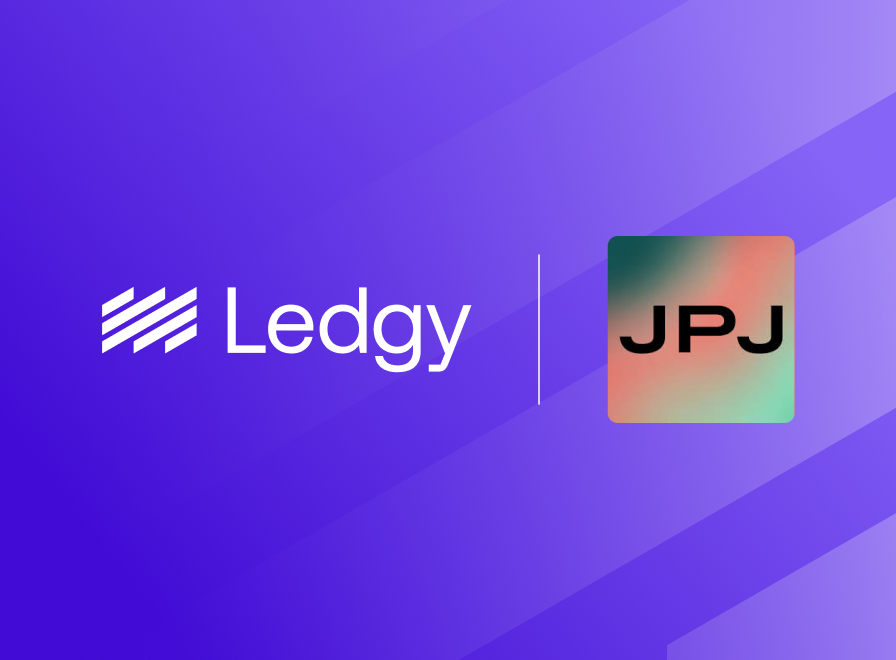What we learned from Edge 2023



In November, Ledgy brought together founders, operators, investors and advisors from many of Europe’s most innovative companies to discuss ways to make equity work heading into 2024. Our agenda spanned founding stories through to global expansion and how to leverage equity as a culture building tool.
With so many lessons, we wanted to bring the key insights into one place. Here’s a session-by-session overview of the most important takeaways.
Equity Empowerment: Navigating Entrepreneurship, Ownership, and the Calm Revolution
With Calm CEO Alex Tew and Ledgy CEO Yoko Spirig
- Companies issuing equity to employees have a problem: it’s easy for exercised options to become worthless and then employees are stuck with the tax bill. The time is ripe to reimagine how equity is granted – but this is not a trivial challenge.
- More favourable tax treatment for people taking the risk and joining an early-stage company – companies can fail easily, and a high-risk, high-reward strategy has paid off in Silicon Valley, where employees are inspired by frequent success stories.
- Always seek to make it clear to the team how much the business is worth / how much their equity is worth. But with IPOs not happening, it’s harder for people to benchmark equity stakes. Communicating equity data can help bring employees with you through tough times.
From Private to Public: Managing Equity Through the Lifecycle
With Delivery Hero Group Corporate Law Director Dr Katalin Kiss, scaleup advisor Frankie Williams, CMS Partner Andrew Quayle, and Ledgy Head of Product Stefanie Lynch
- Understanding transparency in equity plans is often a steep learning curve. As a private company you don’t have to tell the whole market how much equity you’ve given your CEO. In a public company, this is imperative.
- It’s always important to communicate up-front with the team: one panelist mentioned that after one IPO, junior employees were landed with their first self-assessment tax return, which they hadn’t expected.
- IPOs often come with reorganisations that can shake up the structure of the business. This might mean senior managers coming in to steer functions in a public context. But given they can’t benefit from stock price appreciation in the same way as early joiners, how do you incentivise newer hires?
- Not all companies will neatly adhere to market standards: IPOs might compensate some people straight away, others after lock-up periods, and some IPOs won’t necessarily even be treated as exit events. This changes how you brief the news to the team.
- Planning for an IPO has to start 18-24 months ahead of time. Because of the contracts and documentation required to administer IPOs well, this includes the most basic questions, such as: do you know who all your employees are, where they live, and how to get hold of them? But the big opportunity with a public listing is to re-engage and excite employees with a connection to the company’s journey.

Navigating Talent Mobility: Strategies for Successful Global Equity Plan Implementation
With Deloitte Partner Matthew Crocker and Ledgy Enterprise Sales Lead Armon Bättig
- It’s critical to keep things simple with a global mobility policy. Companies shouldn’t aim to have different forms of incentive in different countries until the second location is really business-critical. Instead companies should try to grant from the HQ market, sticking to the home country plan with maybe a few tweaks.
- Employer of Record systems were lauded as admin-light ways to get started hiring and granting equity. But beyond one or two people in a market, EoRs can create more problems than they solve. And contrary to some assumptions, using an EoR does not mean tax and compliance is taken care of.
- A useful rule of thumb for global mobility is: is a location shift driven by a business need, or by individual preferences / desires? If an employee moves because there is a business need, equity and potentially cash incentives can be needed. If it’s a personal choice, the individual doesn’t need to be rewarded in the same way.
- Companies can exploit tactics that can help determine if people understand the different parts of the equity plan. Straw polls asking people whether they understand their stakes, what the company valuation is, etc, can be helpful. Then, judging whether key teams such as HR, legal and finance can walk through the plan in detail. If they don’t get the detail, they can’t communicate the benefits appropriately to employees.
Strategising and Leveraging Equity in Current Times
With Index Ventures VP Talent & Insight Dominic Jacquesson, Getir VP HR Rakesh Patel, Tide CAO Liza Haskell and Ledgy CEO Yoko Spirig
- In light of a rapidly evolving hiring market, it’s vital to understand geographic and cultural norms. Some markets like California are tolerant of higher equity and lower cash compensation, while in Asia cash is prized more highly.
- There are two schools of thought on equity policies: do companies explicitly say equity is special? Or equity treated as ‘just another benefit’? Neither is right or wrong, but understanding your attitude as a business helps you level packages for new hires, structure equity alongside bonus payments, etc.
- In some respects, companies are having to work harder to sell the benefits of equity to candidates. So flexibility in designing packages is important: companies can offer lower or higher exercise prices depending on the candidate’s risk appetite, for instance.
- Another theme was the importance of refresher grants for high-performing employees. It’s essential to keep incentivising your critical team members.
Edge was a fantastic occasion that brought together stakeholders committed to making equity work for their organisations. A big thank you to everyone who attended, and we're already looking forward to next year!



Stay up to date! 🎉
Subscribe to our newsletter and receive the latest insights on the equity world








.png)